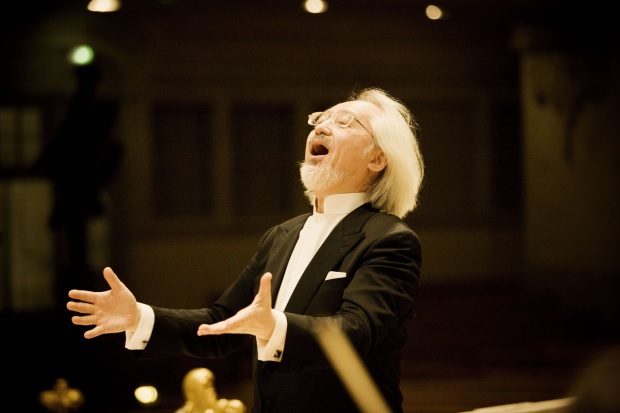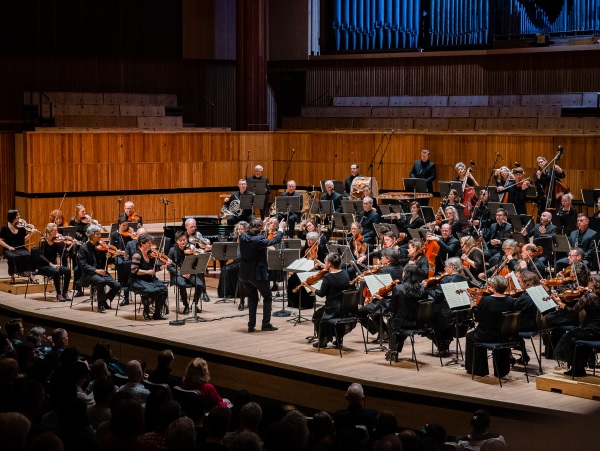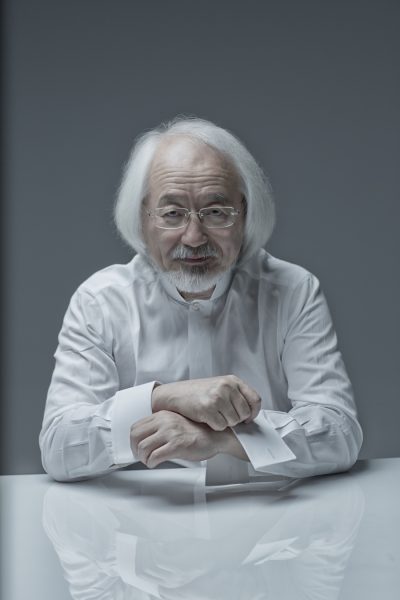Advent Concert of the Prague Spring
There are some works that we simply cannot present during our Prague Spring Festival in May. For example, Bach’s Christmas Oratorio. We see this extraordinary Advent concert in the Spanish Hall of Prague Castle, performed by one of the world’s finest early music ensembles, as a gift to all lovers of classical music.
Suggested dress code: Black Tie Optional
Programme
- Johann Sebastian Bach: Weihnachtsoratorium, BWV 248 (selection)
- Johann Sebastian Bach: Singet den Herrn ein neues Lied, moteto pro dva sbory BWV 225
Performers
- Orchestra of the Age of Englightenment
- Choir of the Age of Enlightenment
- Jessica Cale – soprano
- Hugh Cutting – countertenor
- Guy Cutting – tenor
- Florian Störtz – bass-baritone
- Masaaki Suzuki – conductor
“All joy!” was the British Guardian’s assessment of the 2016 performance of Johann Sebastian Bach’s Christmas Oratorio by the London-based Orchestra of the Age of Enlightenment under the baton of Japanese conductor Masaaki Suzuki. Indeed, from the opening motifs of timpani and strident trumpets Bach’s work radiates quite extraordinary energy – musical joy at the coming of the Saviour. Britain’s leading period-instrument orchestra, together with its choir and four top soloists under Suzuki’s direction, are now coming to Prague to present the first three parts of the work, together with one of Bach’s most beautiful motets, at a special Prague Spring concert in the festive surroundings of the Spanish Hall of Prague Castle.

The Orchestra of the Age of Enlightenment is one of the most acclaimed period-instrument ensembles. Its origins go back to the mid-1980s, when it was founded by a group of musicians dissatisfied with standard orchestral practice. They gradually built up a unique, democratically-run orchestra with a wide repertoire, which has no chief conductor and always seeks the best possible artistic partners for individual ventures. The ensemble has been conducted by such notable figures as Sir Simon Rattle, Vladimir Jurowski, Iván Fischer and William Christie. The current season includes performances of the complete symphonies of Felix Mendelssohn Bartholdy under Sir András Schiff, and guest appearances at the Elbphilharmonie in Hamburg, the Théâtre des Champs-Élysées in Paris and the BOZAR Centre in Brussels.

Since 1990, when he founded the Bach Collegium Japan, the Japanese conductor Masaaki Suzuki has been one of the leading figures in historically informed performance. In addition to being artistic director of Asia’s most important historical instrument ensemble, he regularly conducts the finest ensembles in Europe and America, such as the Collegium Vocale Gent and the Philharmonia Baroque Orchestra in San Francisco. He is also a regular guest of “modern” orchestras, including the New York Philharmonic, the San Francisco Symphony and the Bavarian Radio Symphony Orchestra. This season he will make his debut with the Los Angeles Philharmonic and the Hessian Radio Symphony Orchestra.
He has released an astonishing number of Bach’s works on CD on the Swedish label BIS, both as a conductor and as an outstanding harpsichordist. “It would take an iron bar not to be moved by his crispness, sobriety and spiritual vigour,” The Times wrote in 2018 of a recording of a set of Bach’s sacred works that Suzuki began recording with a Japanese ensemble in the mid-1990s. Among Suzuki’s most recent achievements are recordings of the St. Matthew and St. John Passions, which won the prestigious Gramophone Award.








